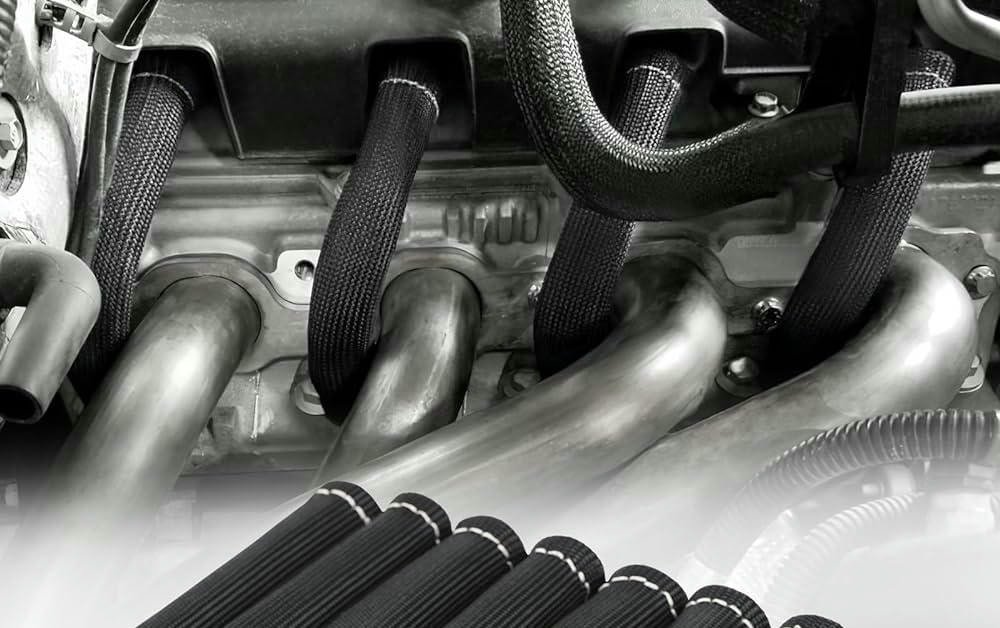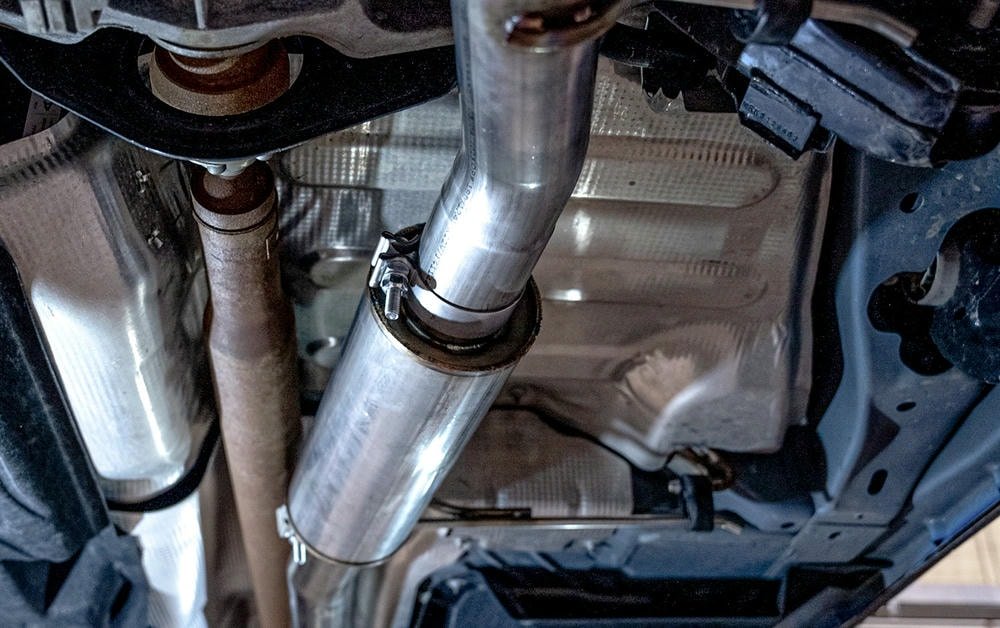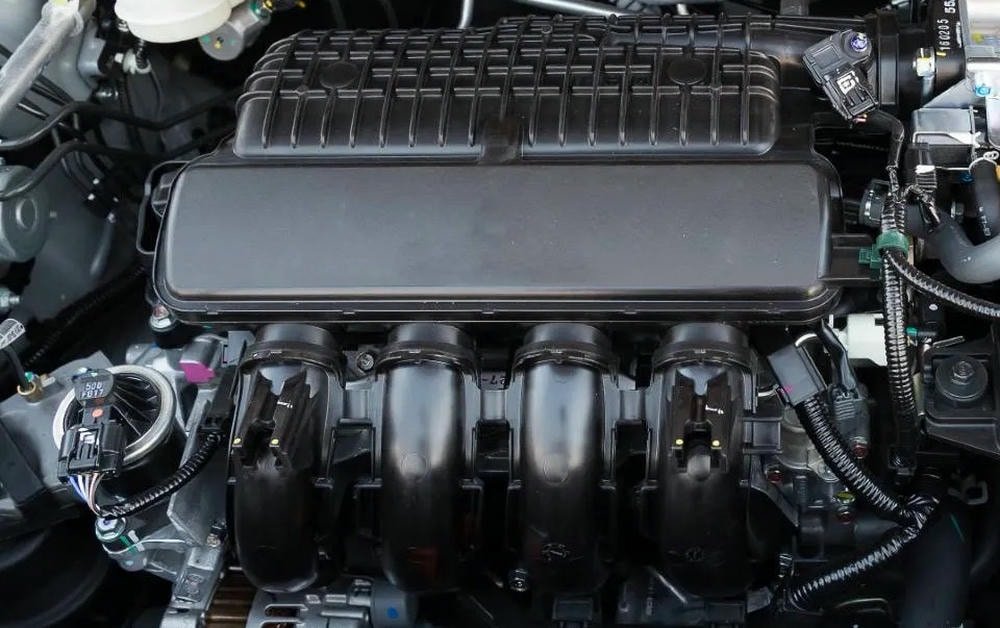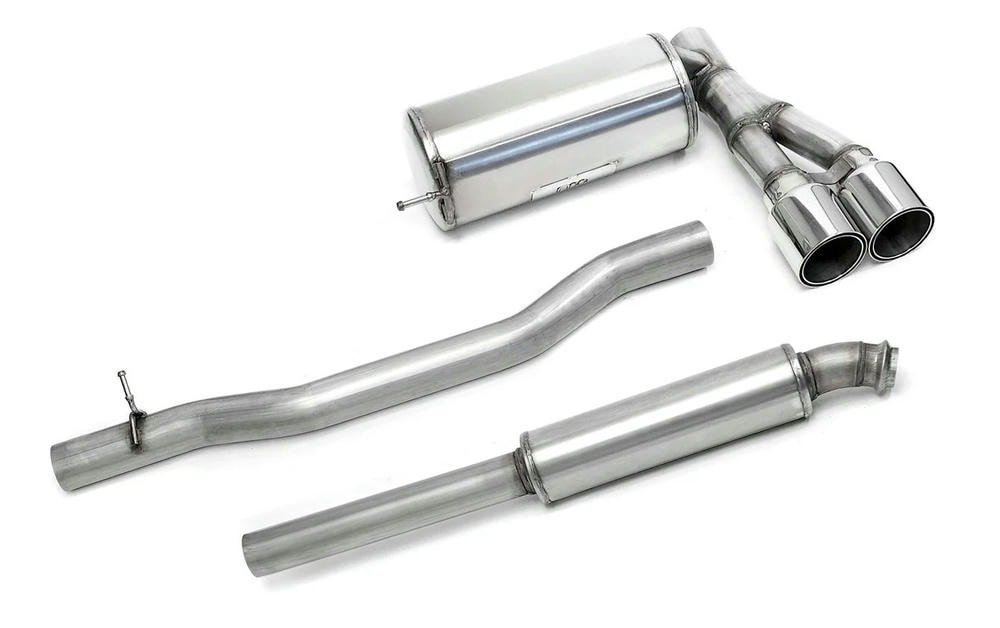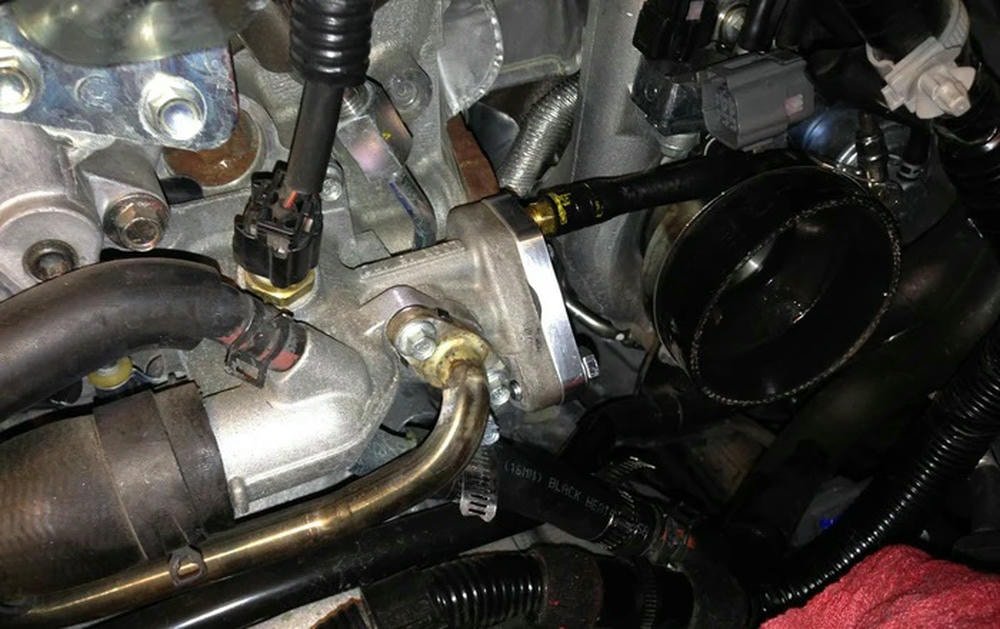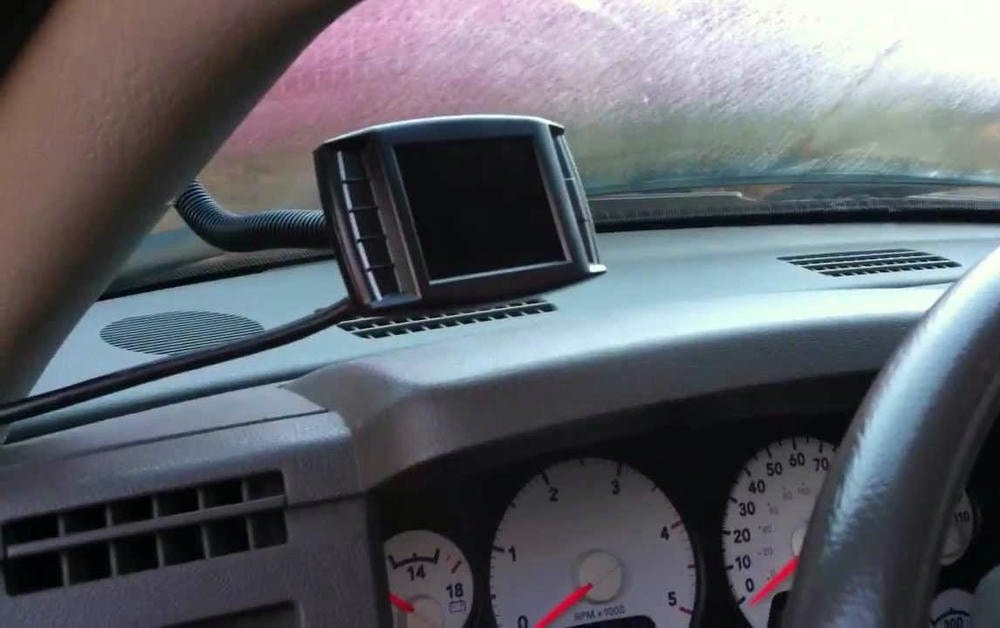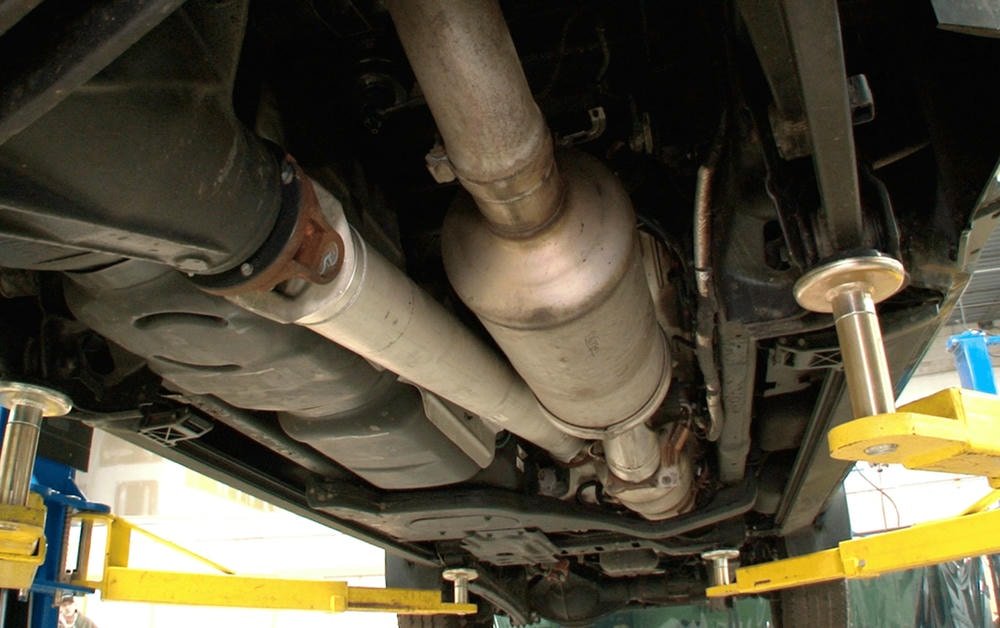Pipes and boot kits are important parts of diesel trucks. Keeping them in good shape ensures the truck runs well and avoids costly fixes. Regular checks can spot cracks, leaks, and wear early on.
Cleaning with mild detergent helps remove dirt. Dry parts completely to prevent rust.
Tight connections stop pressure drops and leaks. Using high-performance boots made from silicone increases heat tolerance and durability. Corrosion-resistant materials like stainless steel or aluminum also help pipes last longer.
This article will show you how to maintain your pipes and boot kits for better performance and a longer lifespan.
Índice
ToggleConsejos de mantenimiento rutinario
Regular maintenance keeps pipes and boot kits in good shape. Follow these simple tips to avoid bigger problems.
Regular Inspection for Cracks and Leaks
Inspecting your pipes and boot kits regularly is crucial. Small issues can grow into big problems if ignored.
- Look at the Pipes Under Good Light
- Use a flashlight to see well.
- Check all pipe surfaces.
- Pay close attention to any areas that are hard to see.
- Feel for Cracks or Rough Spots
- Run your hand over the pipes.
- Feel for any cracks, bumps, or rough areas.
- Small cracks can become bigger with time.
- Check Boot Kits for Tears
- Examine the rubber boots closely.
- Look for any signs of wear or small tears.
- Replace damaged boots immediately.
- Listen for Hissing Sounds
- Turn on the engine and listen carefully.
- Hissing sounds may indicate leaks in the piping system.
- Identify the leak location and mark it.
- Monitor Pressure Levels
- Use a pressure gauge to check system pressure.
- Sudden drops in pressure could signal a leak somewhere in the pipes or connections.
- Conduct Water Tests
- Spray soapy water on suspected areas while running the engine.
- Bubbles will form where there are leaks.
- Note these spots for repair.
- Inspect After Long Trips
- Long drives put stress on pipes and boots.
- Inspect your truck’s system after every lengthy trip to catch new issues early.
- Use UV Dye for Hidden Leaks
- Add UV dye into the system and use a UV light to detect leaks that are hard to find by eye alone.
Regular inspections help keep performance up and avoid costly repairs later on. Make it part of your maintenance routine to ensure everything runs smoothly.
Cleaning the Pipes and Boots
Keeping pipes and boots clean is vital for your camión diesel. Clean parts help the engine run smoothly.
- Gather necessary tools: Use a soft brush, mild detergent, water hose, and a cloth.
- Turn off the engine: Ensure it’s cool to avoid burns.
- Disconnect pipes and boots: Loosen clamps using a wrench or screwdriver.
- Inspect parts before cleaning: Check for cracks or any damage. Replace damaged sections if needed.
- Rinse with water: Spray both inside and outside surfaces to remove dirt and debris.
- Apply detergent: Mix mild soap with water. Use a soft brush to scrub the pipes and boots.
- Scrub gently: Focus on areas with grime buildup. Avoid harsh scrubbing to prevent damage.
- Rinse thoroughly: Wash off all soap residue with plenty of water.
- Dry completely: Wipe with a dry cloth. Let them air-dry fully to avoid moisture buildup that can cause rust or mold.
Maintaining clean pipes and boots will extend their lifespan. It’s also key for optimal performance in turbocharged vehicles.
Checking and Tightening Connections
Checking and tightening connections are key steps in maintaining pipes and boot kits. Loose or damaged connections can cause leaks and reduce performance.
- Visual Inspection: Look at all pipe and boot connections. Check for any signs of cracks, wear, or looseness. Even small gaps can cause issues.
- Test for Leaks: Run the engine and listen carefully near the connections. A hissing sound may indicate a leak that needs fixing.
- Use Proper Tools: Use a wrench or pliers to tighten the clamps around the pipes and boots. Avoid over-tightening as it can damage the parts.
- Check Clamps Regularly: Inspect all clamps for rust or damage at least once a month. Replace any damaged clamps to keep the system secure.
- Feel for Tightness: Gently pull on the pipes and boots after tightening to ensure they do not move easily.
- Monitor Connections During Use: Pay attention while driving for any unusual sounds or drops in rendimiento del motor which could indicate a loose connection.
- Replace Worn Parts Promptly: If you find any worn-out pipes, boots, or clamps during your checks, replace them immediately to maintain optimal performance.
Tight connections mean better efficiency and fewer problems on the road for your diesel truck. Proper checks help extend the life of your engine components.
Monitoring for Signs of Wear and Tear
Cracks, splits, and bulges in pipes or boot kits indicate wear and tear. Watch for discoloration or rust on metal parts. These mean damage is starting.
Listen to your diesel truck. Unusual sounds signal issues. A sharp hiss might point to a leak. Check clamps and joints often since they loosen over time.
Common Issues and How to Address Them
Pipes and boot kits can face problems like leaks, cracks, corrosion, and loose clamps. Learn how to fix these issues effectively by reading more.
Leaks and Pressure Drops
Leaks and pressure drops can cause serious issues in diesel engines. Small cracks or loose connections often lead to these problems. Regular inspection is key. Look for oil spots or hissing sounds around the pipes and boot kits.
A drop in pressure usually means there’s a leak somewhere. This affects fuel economy and performance mods like turbocharging systems. Always tighten clamps and check gaskets after installation to prevent air leaks.
Utilizando heavy-duty clamps helps maintain an airtight seal, improving overall engine efficiency.
Cracked or Torn Boots
Cracked or torn boots in a diesel truck can cause many issues. These problems often lead to leaks and loss of pressure, which affect the performance of turbocharged engines. Inspect boots regularly for any damage.
Cleaning helps spot cracks early.
Utilizando high-performance boots made from EPDM rubber can offer better durability. Heavy-duty clamps ensure tight connections and prevent further wear and tear. Replacing damaged engine boot kits promptly helps maintain optimal fuel mileage and keeps the sistema de escape parts in good shape.
Corrosion in Metal Pipes
Corrosion in metal pipes can cause big problems for diesel engines. Moisture and oxygen react with the metal, leading to rust. Rust weakens the pipes, causing leaks and breaks.
To prevent corrosion, use corrosion-resistant materials like stainless steel. Inspect your pipes often for signs of rust. Replace any damaged sections right away to avoid bigger issues later on.
Loose or Damaged Clamps
Loose or damaged clamps can cause big problems in diesel engines. These can lead to leaks, pressure drops, or even turbocharger damage. Regularly check the clamps around intercooler piping and other connections for a secure fit.
Tighten any loose clamps with a wrench to prevent blow-by and loss of engine power. Replace damaged ones with heavy-duty replacements to ensure a snug fit. Always opt for high-quality clamps suited for your specific setup, like those designed for custom piping systems or high-performance boots.
Upgrades and Enhancements for Longevity
Upgrading your pipes and boots can extend their lifespan. Consider switching to materials that resist corrosion or using parts designed for heavy-duty use.
Upgrading to High-Performance Boots
High-performance boots enhance your diesel truck’s efficiency and durability. These boots tolerate higher pressure and temperature, ensuring reliable performance during heavy-duty tasks like turbo charging or off-road driving.
Installation of these advanced boots lowers the risk of leaks or tears, maintaining constant air flow to the engine.
Consider boots made from silicone or other high-grade materials for better heat resistance and longevity. Silicone is ideal because it can withstand temperatures up to 500°F. Such materials help resist wear from forced-induction systems, leading to fewer replacements and less downtime.
Using Heavy-Duty Clamps
Utilizando heavy-duty clamps can keep pipes and boot kits stable. These clamps hold connections tight, reducing the risk of leaks and pressure drops. They are made to withstand high pressure, making them ideal for diesel engines.
Heavy-duty clamps last longer than standard ones. This means fewer replacements and less downtime. It’s a simple upgrade that provides peace of mind when dealing with sensitive parts like intercoolers or crankcase vent hoses.
Always check the sizing to ensure they fit correctly around the pipes and boots you use in your truck setup.
Opting for Corrosion-Resistant Materials
Opt for corrosion-resistant materials to extend the life of your pipes and boot kits. Corrosion can cause leaks and pressure drops in metal pipes, leading to costly repairs. Use stainless steel or aluminum for parts exposed to moisture and chemicals.
These metals resist rust better than standard steel.
Consider using plastic piping where possible. PVC and CPVC are lightweight, easy to install, and immune to rust. For clamps, opt for those made from durable materials like zinc-coated steel or other treated metals.
This will help prevent failures due to corrosion over time.
Conclusión
Maintaining pipes and boot kits is crucial for diesel truck owners. Regular upkeep ensures the longevity of these components.
Mark Johnson, a seasoned mechanical engineer with 20 years of experience, offers his insights. Mark holds a Master’s degree in Mechanical Engineering from MIT and has contributed to several industry-leading research projects on engine components.
Mark highlights that regular checks for cracks and leaks are vital. Cleaning the pipes prevents clogging and buildup. Tightening connections avoids pressure drops, ensuring smooth operation.
Safety is key in maintaining pipes and boots. Using certified parts ensures compliance with safety standards. Honest disclosure about maintenance routines helps prevent accidents.
For everyday use, Mark suggests inspecting your equipment weekly. Replace any worn or damaged parts immediately to avoid bigger issues down the line.
The pros include prolonged lifespan of your engine components and better performance. Potential drawbacks might be the time spent on routine checks compared to other market options which may offer quicker solutions but not as thorough results over time.
Overall, Mark recommends regular maintenance of pipes and boot kits as essential for all diesel truck owners wanting reliable performance from their engines.
Preguntas frecuentes
What are common problems with pipes and boot kits?
Common problems include leaks, detonation, compressor surge, and heat dissipation issues. Proper maintenance can prevent these issues.
How do I maintain my pipes and boot kits for diesel engine upgrades?
Regularly inspect the tubing, throttle body, valves, and pipe fittings. Ensure all clamps and bolts are secure to avoid compressor stall.
What steps should I follow in a pipes and boot kits maintenance guide?
Check for water damage on metal roofs or roof shingles near flashings or chimneys. Inspect gutters for proper drainage to keep your plumbing system waterproof.
How can I troubleshoot issues with my pipe fittings or intake manifold?
Look for signs of flange wear or loose screws around the combustion chamber area. Use precise tools to tighten any loose components to prevent air-to-air heat exchanger failures.
Are there specific upkeep tips for custom piping setups in performance upgrades?
Yes, ensure that piston rings are intact and check the charge-air cooler regularly to optimize engine cooling systems during diesel tuning sessions.
Can maintaining electrical wiring impact my engine optimization efforts?
Absolutely! Keeping your electrical wiring in good condition helps maintain efficient power transfer within turbochargers’ systems enhancing overall performance while preventing potential water damage due to faulty connections.

